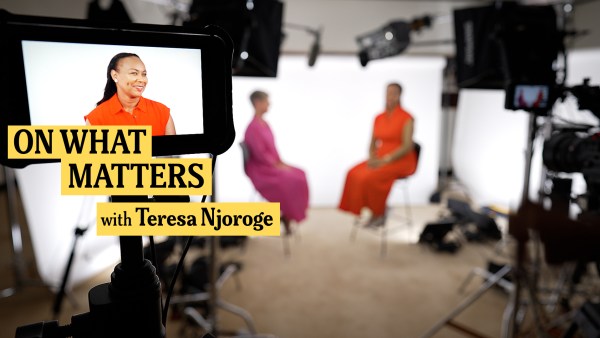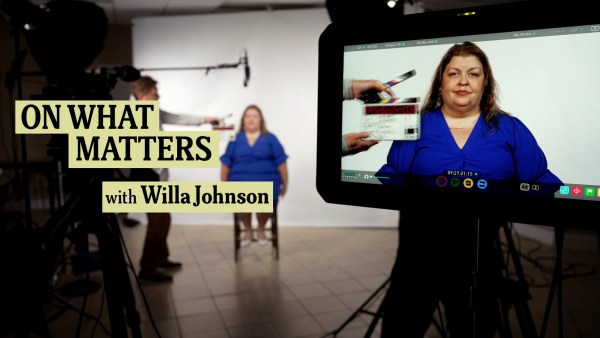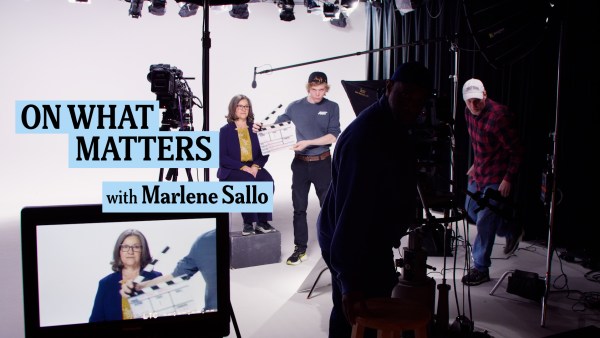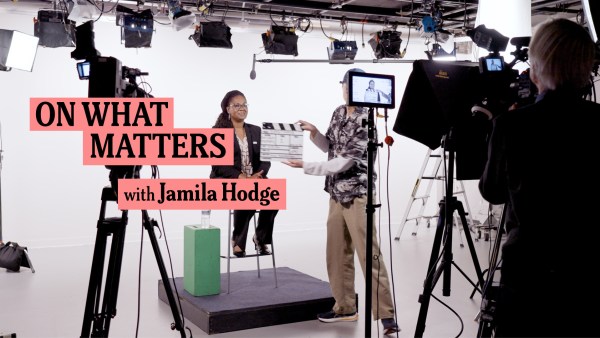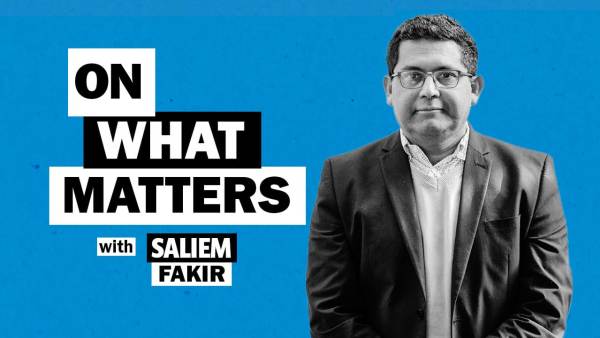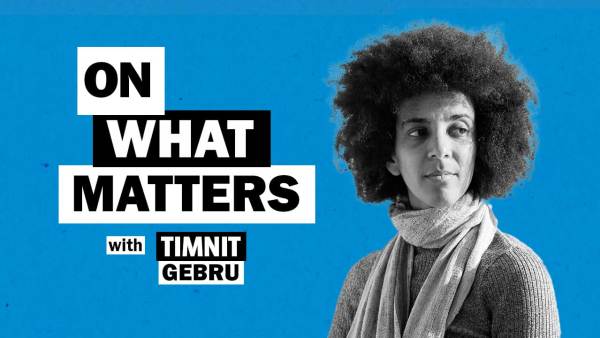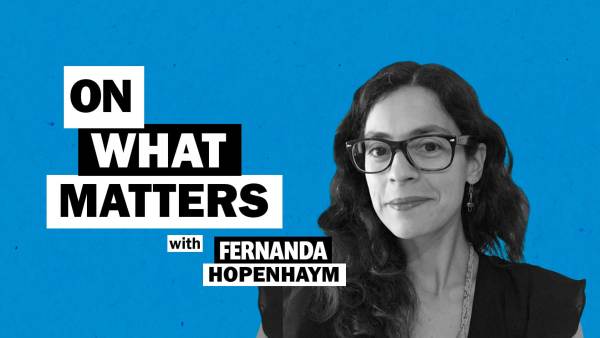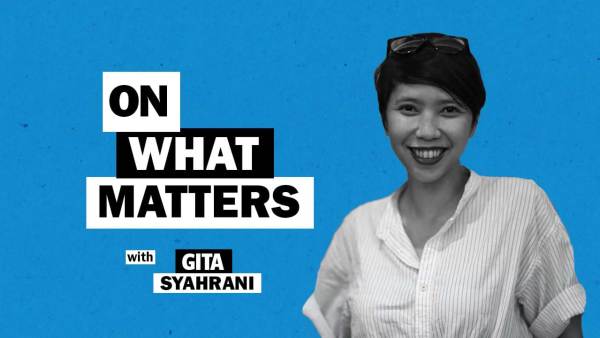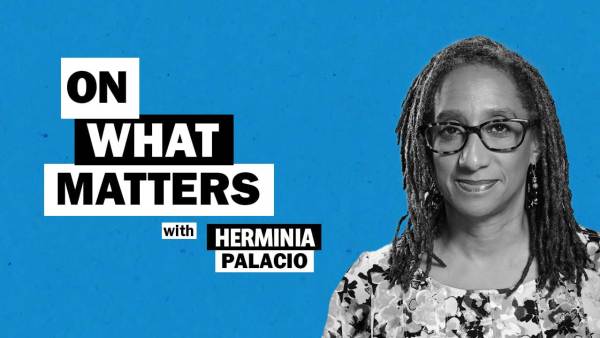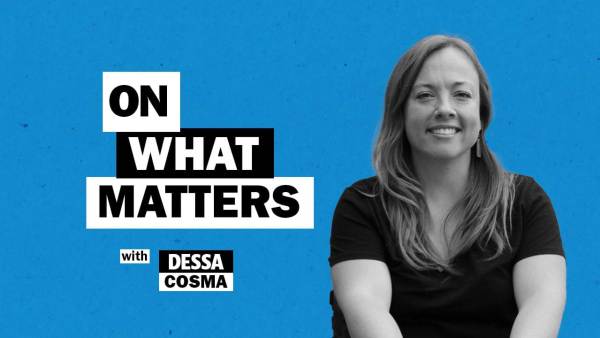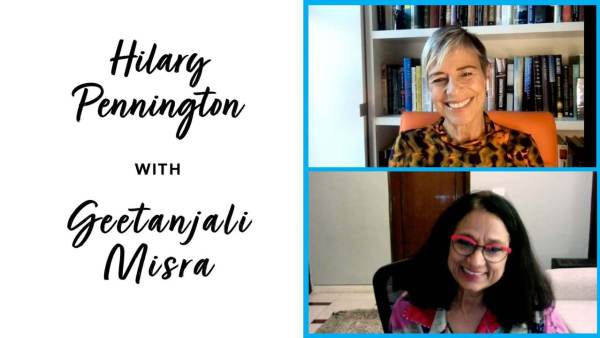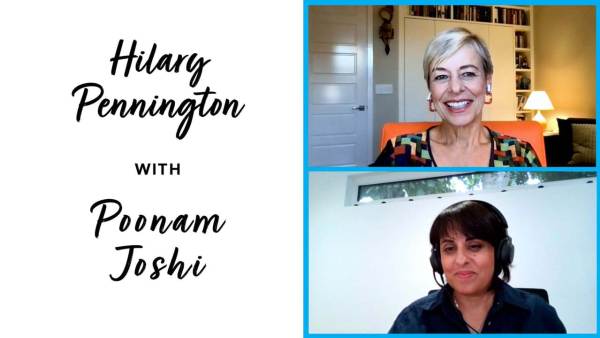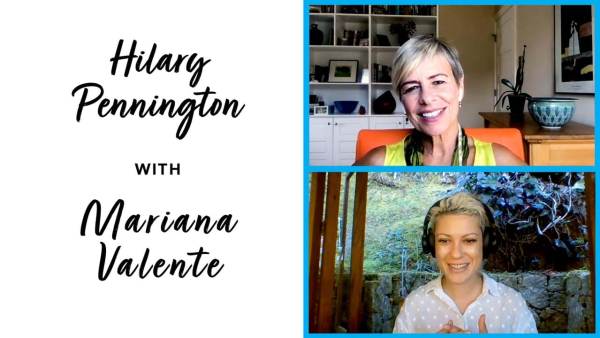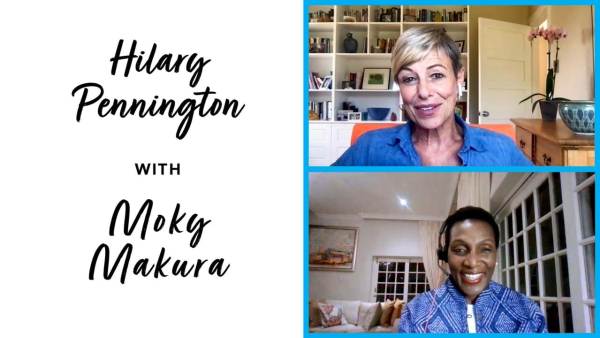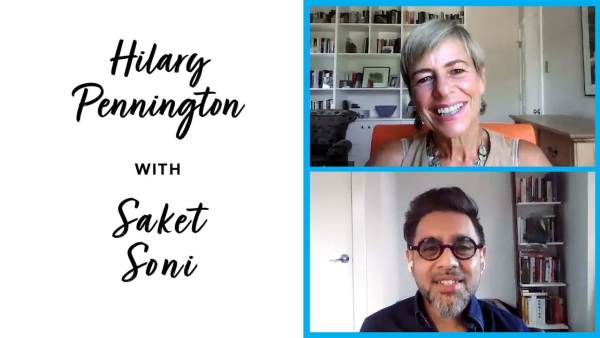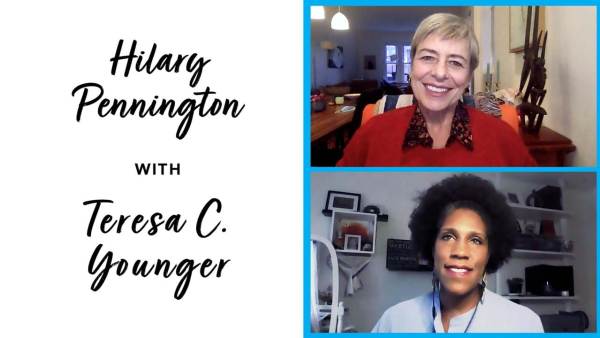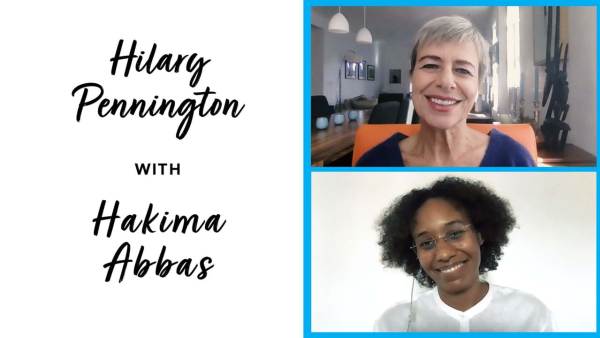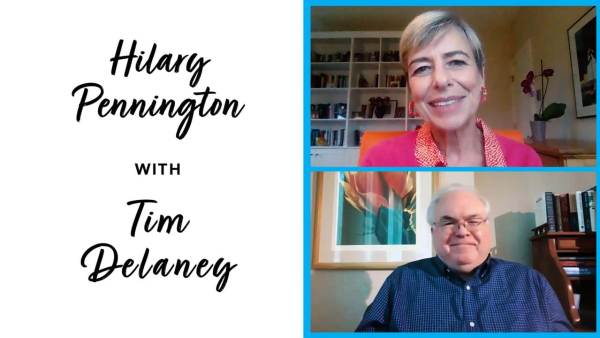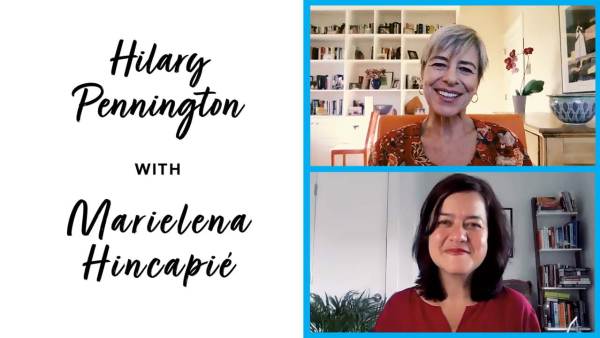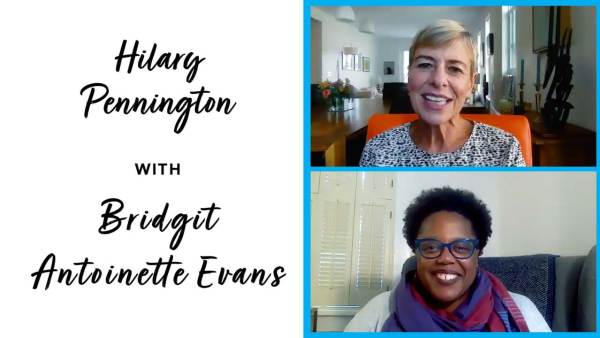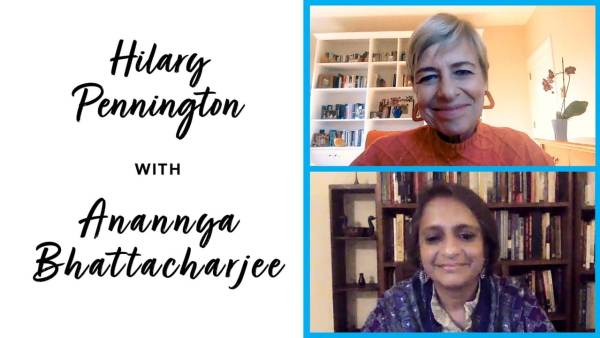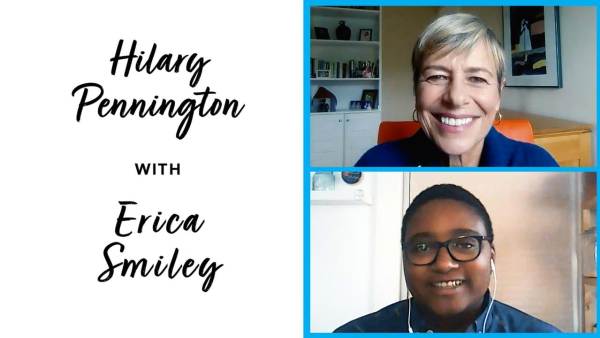Decolonizing Humanitarian Aid With Degan Ali and Martín Abregú

Transcript
MARTÍN ABREGÚ: Hi! Thanks for joining us for the latest conversation in our ongoing series “On What Matters.” I am Martín Abregú, and I’m the vice president of international programs at the Ford Foundation. I am a white Hispanic male in my mid-to-late fifties wearing glasses and with salt-and-pepper hair. And today, I will be speaking with Degan Ali about how to create locally led development and decolonize aid. Degan believes in rethinking the structure of providing aid and leaning into local civil society organizations to assume the mantle. Welcome, Degan.
DEGAN ALI: Thank you, Martin. Thank you for having me. I’m Degan Ali. I’m the executive director of Adeso. I’m a Somali-American woman with a hijab and wearing glasses.
MARTÍN ABREGÚ: So, Degan, let’s learn a bit more about your work. So why don’t we start at the beginning? Why don’t you help us understand what the current development aid models look like and why they need to be transformed?
DEGAN ALI: Well, the current aid models are extremely broken. We have a situation where a lot of the Global South countries that are still in poverty are dealing with an ecosystem and architecture that was developed by Global North countries and former colonizers. All the winners of World War II came together and formed these institutions that we’re still dealing with the ramifications. The impact of those structures, whether it’s the World Bank and the IMF or whether it’s the UN and the Security Council veto power, are held in the hands of these five countries. And so it creates a situation where a lot of Global South countries don’t have a level playing field. And so because they’re not able to trade effectively, because there’s a massive debt burden, we have countries that are not able to meet the needs of their citizens. When you are using 40% of your revenue as a country to finance debt or to finance interest on debt, then you cannot provide health, education, or humanitarian support if a crisis happens, and therefore you need aid. So on the one hand, these governments, these Global North institutions, are trying to ensure that these countries stay in poverty. And on the other hand, they finance aid and development, acting as if they have altruistic motives, but when in reality, all they have to do is create a level playing field for these countries to lift their people out of poverty. So, these are the underlying factors of the problems. And I feel like what we end up doing is just looking at the superficial issues around, we need to have a more participatory way of working with communities. All of those things are really important, but we need to understand why these countries are still poor. It’s not by accident, it’s by design.
MARTÍN ABREGÚ: We are talking here about a structural problem. But what would a decolonized model look like? And how do we get there? Because we’ve been kind of stuck in this development aid model for a while. So how do we move from here to there?
DEGAN ALI: I would love to say that that transition is going to be easy, and I would love to say that it’s going to be painless, but I don’t think that’s going to be the case. I think it’s going to be a very painful transition. And as they say, power is never given willingly. You have to take it, and we are already seeing a situation of multipolarity. We are seeing a situation with the rise of the BRICS nations. We’re seeing these BRICS nations coming up with new systems of banking. We are seeing de-dollarization and the dollar losing its power. All of these things are going to allow Global South countries to really create a system where they can trade and develop their countries under more equitable terms. But it’s painful for the North, because the standard of living that many Northern people are experiencing in Europe and the U.S. is as a result of the status quo, is as a result of the current structure and systems that keeps us in poverty. So our rise, unfortunately, will mean pain for a Global North citizenry to create that equilibrium. We have to come to a point where we can renegotiate the global governance systems. We have to get to the point where we can renegotiate the structures such as the UN, and the World Bank, and the IMF. Unless we get to that point, then we are still not talking about the root causes of problems. Imagine a situation where a country like Ghana becomes a donor to a crisis in Louisiana or a crisis in France. I mean, that’s the kind of world where we should be seeing, where there’s mutual solidarity, mutual aid that goes from the south to the north, from the north to the south, the south to the south. You know, that kind of situation is where we should be working towards, not a situation where it’s all one-sided, and it’s only one side: north to the south.
MARTÍN ABREGÚ: Degan, why is it so important that development initiatives be led by people on the ground? And how is that different from other conversations that are currently taking place around localization?
DEGAN ALI: So localization has become, in my opinion, it’s a conversation around transactional issues. We in the Global South don’t get enough resources in the aid sector. As I said, one of the manifestations of how the system is broken is that in humanitarian and development aid—this is emergencies, health, education, philanthropy, all of that combined—we don’t receive more than 4% of the global aid, meaning the ones at the community. The last-mile actors working with the communities every day in insecure environments, we’re the ones who die first, our staff are usually the ones who die first and risk their lives in places like Syria and other countries, but we get the least amount of resources. And so the localization agenda was more around, “How do we get more power as civil society, how do we get more resources directly to us, and how do we have a seat at the table in decision-making forums?” Whereas I think there is another angle, a deeper angle, and that is about, “Okay, great, you have more resources, more power and all of that, but how do you address the root causes of these problems so that your communities are not continuously meeting these challenges all the time? How do we help address the root causes?” And that goes to the structural issues that I described earlier, and that is what decolonization for me means. It means that we should not be just tweaking the system around the edges, which is important. Let’s tweak. Let’s do that. It’s important. I’m not saying ignore it, but what I’m saying is simultaneously, let’s figure out how to address the root causes of the problem, which is the architecture that is broken, that is ensuring that our governments don’t have the resources to meet the social contract between the government and its citizenry.
DEGAN ALI: And that contract is not met because many of these countries are servicing debt. I’ll give you a very good example. So Malawi post-independence had very strong policies, really positive pro-citizenry policies around food sovereignty. And they said that they’re going to subsidize their farmers and have a reserve for emergencies. If you can’t feed your citizens, you can’t do anything; you can’t develop. And that’s a basic thing. And so fast forward a few years after independence, the IMF, the World Bank came along and said, we’re going to give you a loan, and as a condition of those loans, you have to remove all subsidies and the reserve that you have in place. So they’ve destroyed all of their food sovereignty, ability to be food sovereign and resilient. Fast forward again years later. There’s a drought that happens. There’s no reserve to cushion the people against a drought, and so people become malnourished. Food insecurity happens. The same governments that control the IMF and the World Bank and instituted this policy to ensure that Malawi had no food sovereignty are the same ones now who ended up giving funding to UNICEF, to all of these NGOs to run food security, agriculture, malnutrition programs in the same country. So on the one hand, you take, on the other hand, you act like you’re giving. So this is the contradiction, this is what aid is about. Aid is just, is a symptom of a bigger, bigger problem. And that’s what we need to address. And that is why I appreciate the importance of addressing surface-level issues around power and resourcing to local organizations. We continue as Adeso to do a lot of work in that space, with the “Pledge for Change” and other work that we do on advocacy. But we also have to take equal importance in really dramatically and completely addressing the architecture issues.
MARTÍN ABREGÚ: All right. Thank you for that, Degan. We are receiving questions from our audience, so I would like to move us to our first question. And this is coming from a common friend of ours, Abby Maxman, CEO of Oxfam America, and Abby is asking, “Can you talk about how you think the “Pledge for Change” can help make a tangible difference in empowering local and national organizations, and how that shift of power would ultimately help people affected by crisis and poverty?”
DEGAN ALI: So I think now we’ve just talked about the global architecture and the system. Now let’s talk about the reality on the ground, how this aid system manifests itself on the ground for the communities. And what has happened is that the aid system not only has created terrible power dynamics between Global North institutions like the UN, UN agencies, and Global North civil society that we call INGOs—we know all the major brands like CARE, Oxfam, Save the Children, IRC, all of these major international NGO brands. All of these institutions hold all the resources and power and decision-making with the backing of their donors. And so how that transpires on the ground with communities is that these institutions really come to communities with a top-down approach. There is no community involvement in the design of projects. I’ll use the example of Ghana coming to California because there’s a crisis, a drought or something, and they start implementing programs without any involvement and engagement of the community. They develop their proposals in Accra, they have their decisions in Accra, and then they come top-down heavy in large numbers with all the Ghanaian staff on the ground, no involvement of the local population, and this is exactly what happens every day in the Global South. Every single day this is how aid is administered in a very disempowering way, and so what we have tried to say is, okay, there are the global issues, the structural issues, and we need to work on that. But we have also practical issues on the ground where we have terrible power relationships between civil society from the North, the INGOs, and civil society in these countries, and how do we improve those relationships so that when they come into our communities, they come with a position of humility. They come to us with real involvement and inclusivity. And that is what the “Pledge for Change” is trying to address. And so we have started this process with 12 INGOs that have made three commitments on how to improve their way of working and their behavior internally, but also externally. And the three commitments are around partnerships—equitable partnerships—how to share power with civil society in the countries and share resources. The second one is about storytelling and things like poverty porn imagery, and all of that. And the third is around influencing their peers and their back donors. So Americans, NGOs in the U.S., should be influencing USAID. It is not our job, my job in Kenya, to influence the U.S. government. It is civil society in the U.S. to do that. And unfortunately what has happened over the years is that they’ve become almost like subcontractors of their donor governments and they don’t really influence them. They’re no longer holding their governments accountable because they get so much money and resources. As we say, it’s difficult to bite the hand that feeds you. And if you become a billion dollar NGO, it’s going to be very hard to say, “Hey, I’m going to really hold USAID accountable and tell truth to power,” when they are giving you so much money. So these are the problems that they have to face and deal with if they are really serious around decolonizing their business model and working in a real way of mutual solidarity. Then we have to question whether these business models are even effective and fit for purpose. Some of these NGOs will have to change. As I said, the world is changing, and if they don’t change with the world, then they’re going to either close down and not exist, or honestly they might even be kicked out. We’ve seen some negative impacts of, you know, governments pushing back on civil society space. Some of it is because the governments are not all of it, but some of it is because these governments are saying, “Enough is enough. We need our sovereignty back. You can’t come into our countries and do as you please.” And more and more of that is going to happen. And so if they don’t change their behavior, they don’t change their business models, I think there’s going to be more negative consequences of the status quo. So this is what the pledge is about, is saying we are committed as INGOs to working with you in mutual solidarity and to fixing our house and getting our house in order so that we can become better partners to you.
MARTÍN ABREGÚ: Thank you, Degan, for that. And talking about what is changing, you know, we got another question from Catherine about what diverse models of leadership are necessary to respond to the unique needs of communities and locally led development. What can you say about that?
DEGAN ALI: So this is a very interesting question, because I think there is a contradiction between the Western leadership model, where it says that to be a good leader, you have to—a successful leader of any entity—your success matrix is measured by money. How much income you have grown, the organization, how many staff you have, how many countries you operate in. All the metrics of success are around power, and that is good leadership within the Western definition. And we have emulated that. We have bought into that, we’ve become colonized, and we think that that’s what we should be looking like. We should be imitating these Global North institutions, which is a big problem. Even I went through that process as Adeso, and I thought that my metrics of success as a good CEO of Adeso was to grow the organization, become bigger and bigger, and work in more locations. And I had an “Aha!” moment and I had to pivot massively, and it was extremely painful and hard. So we have to control that instinct of following in that path, both in the Global North and in the Global South. And real, good leadership should be about coming to communities and places with real humility, really saying, “I don’t know, this is not my context, this is not my community. I don’t understand, help me understand. How do we create things together? How do we work in real partnership? How do I recognize your value? Yes, you might not have the best systems, you might not have the best reports, you might not have the best budgeting, and all the back office that INGOs have spent so much money over the years in developing, subsidized by their donors.” We don’t have the luxury of those resources, but our knowledge of the community, our understanding of the culture, that should have value. There should be some way of valuing that. Maybe not in monetary terms, but in other ways, that’s as powerful and as important as money. And so that is what the kind of leadership that we need civil society to demonstrate, UN agency leaders to demonstrate, and the whole global aid architecture to demonstrate.
MARTÍN ABREGÚ: So we have time for one more question from the audience. So I want to bring this question from Kay. “Can only the former colonized be active in decolonization or can citizens of former colonial powers also contribute?”
DEGAN ALI: I mean, for me, I just don’t see how we can do this alone. This is not a situation that can be fixed alone, and there’s equal responsibility, not only in our hands as citizens of the Global South, but there’s if not more responsibility on the part of the citizens of the North who have benefited from our exploitation over the years. You have a responsibility to fix this. And that’s what we have been saying to INGOs, is to say, “You need to go back to your roots as real civil society, and as a real third sector that holds your government and private sector accountable. Stop being just contractors to your governments and stop thinking only about money and income and expansion and being an imperialist in our countries.” And so, yeah, there is a huge responsibility for both actors. We have to work hard in taking responsibility for our failings, our shortcomings as a Global South, and we have to take personal responsibility and recognize that our leaders are not the best. But we also need help. And this is what real solidarity looks like, is that everybody reflects on and takes ownership of their shortcomings and their history and their contributions to this problem. And that we work together to solve it. It can’t be done by only one side.
MARTÍN ABREGÚ: Thank you, Degan, for such an illuminating conversation. And thank you to all of you for tuning in today and we really hope that you will join us for our upcoming conversations in our ongoing series “On What Matters.” Stay tuned to learn how. Thank you!
End of transcript.
Accessibility Statement
- All videos produced by the Ford Foundation since 2020 include captions and downloadable transcripts. For videos where visuals require additional understanding, we offer audio-described versions.
- We are continuing to make videos produced prior to 2020 accessible.
- Videos from third-party sources (those not produced by the Ford Foundation) may not have captions, accessible transcripts, or audio descriptions.
- To improve accessibility beyond our site, we’ve created a free video accessibility WordPress plug-in.
Welcome to “On What Matters,” a conversation series in which Ford Foundation leaders talk to our social justice grantees on the frontlines of change.
In this episode, Martín Abregú, Ford’s vice president of international programs, interviews Degan Ali, executive director of Adeso, an African organization that is changing the way people think about and deliver humanitarian aid.
Degan outlines the importance of people on the ground leading development initiatives and the ways we can rethink the global structure of providing aid.
Learn more about Adeso at: https://adesoafrica.org/
Learn more about the Pledge for Change at: https://pledgeforchange2030.org/
